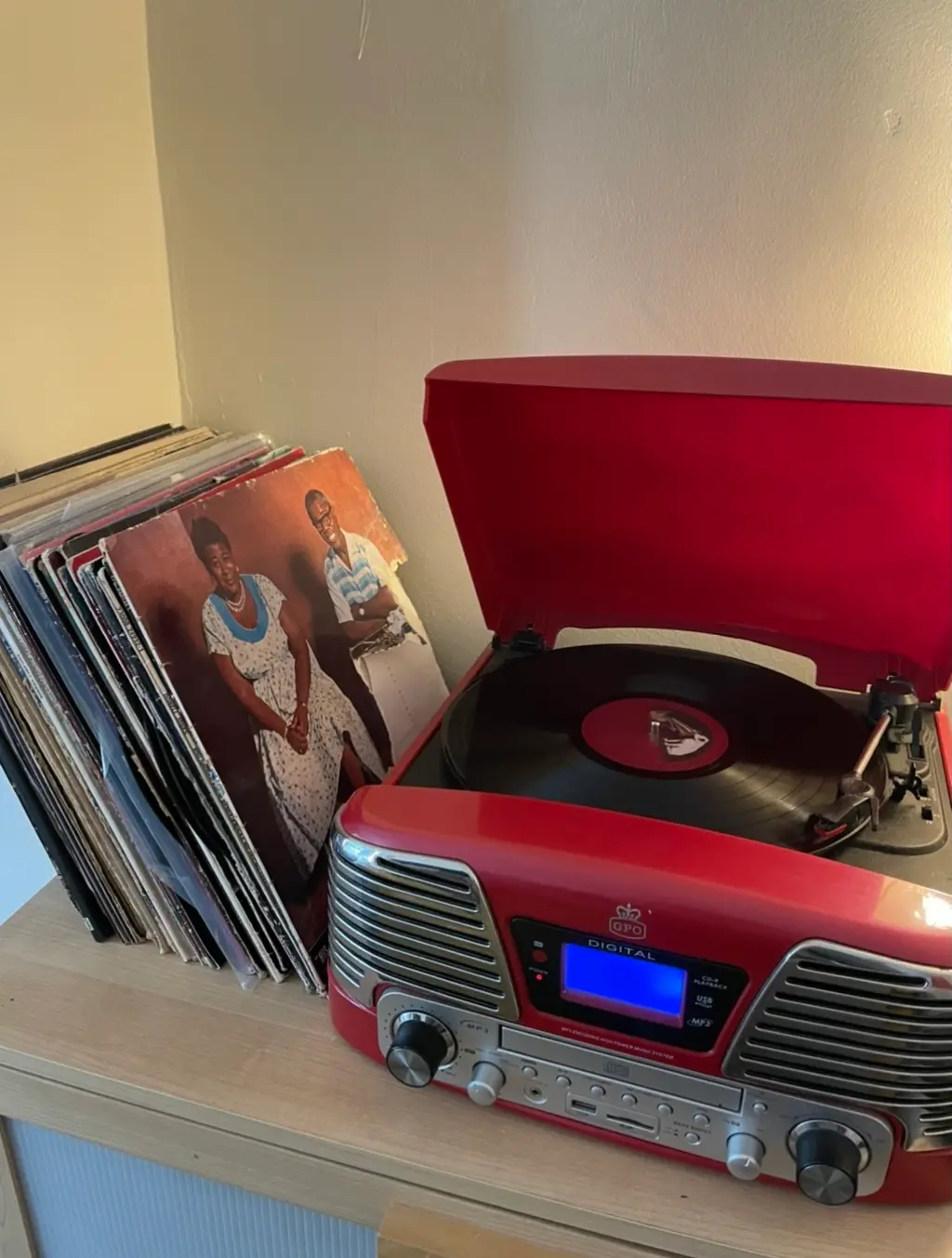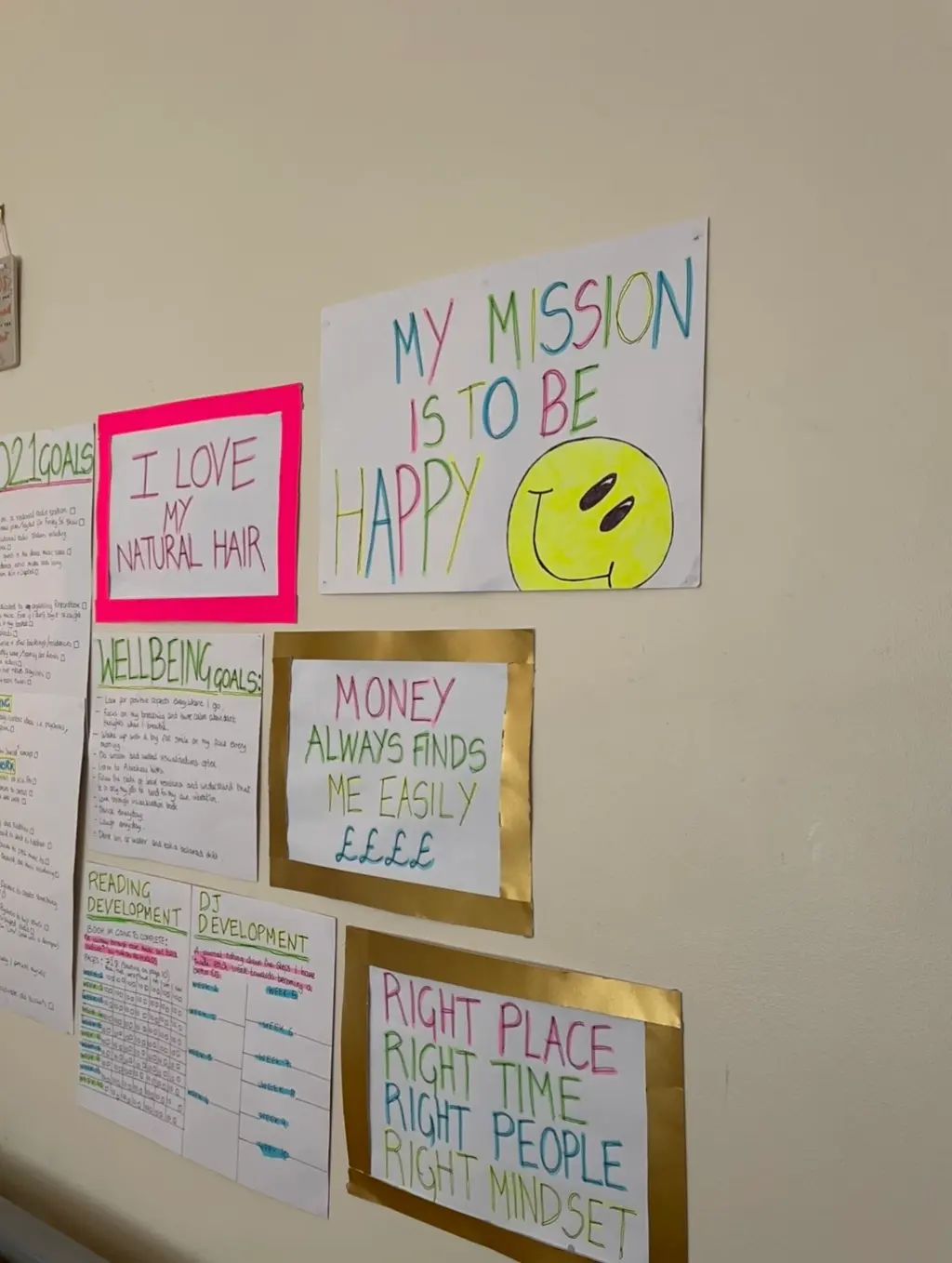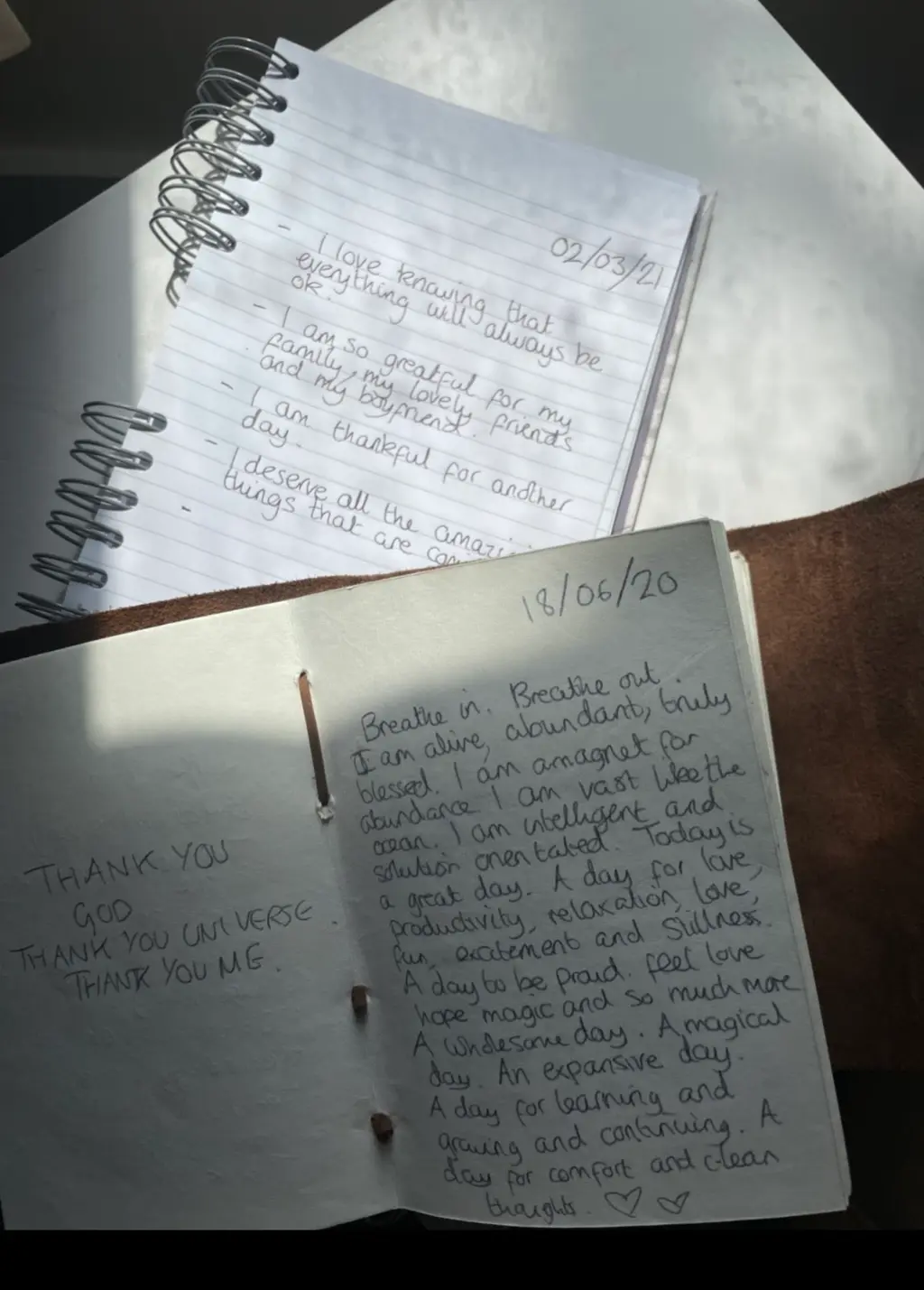Life as a 26-year-old DJ recovering from psychosis
Mental Health Diaries: After experiencing an episode of psychosis during lockdown last year, a radio DJ talks us through what a day is like while in recovery.
I am a 26-year-old radio broadcaster and DJ from Essex. I’m currently recovering from my first episode of psychosis, which I experienced during the first lockdown in April 2020. Psychosis is defined as a severe mental disorder, which can impair a person’s thoughts and emotions to the extent that contact is lost with external reality.
7:00AM: My mornings are very important to my mental health. It’s a chance for me to set the tone of my whole day. When I had psychosis last April, I overworked my brain by overthinking multiple areas of my life at once. In order to avoid that headache, I have to start my day with clarity, consistency and simple pleasures. These include dancing in my room to my Ella Fitzgerald and Louis Armstrong jazz vinyl. I listen to the same song and album every morning. I love the whole act and tactileness of putting on a vinyl. It’s like the whole world stops for a while and I can just breathe, stay calm and align myself for the day ahead.
10:30AM: Time to walk to work. I’m a DJ and radio broadcaster and my job consists of talking to about 30,000 people across the whole of Essex. I love my job, but my worst fear is broadcasting myself while being unaware that I am mentally ill. Luckily, when I experienced psychosis, we were in a lockdown and all the radio stations were closed. If I had been on-air during my psychotic episode, I would have most likely said something that went against Ofcom rules, which could have cost me my job and lost my radio station its license for good. This thought alone sometimes makes me feel down and on edge, so it is absolutely crucial that I stay in the present and fill myself up with enough affirmations, gratitude, love and calmness. This includes staying present on my walk to work, looking at the trees, admiring their beauty, smiling at the people I walk past and focusing on my walking and my breathing.
12:00PM: By this time, I am half-way through my two-hour radio show. I remind myself that I’m really good at my job and I’m proud of myself for making it this far, despite what I’ve been through over the last year. I celebrate by playing Gold Dust by DJ Fresh and I introduce the song as my “drum ‘n’ bass track of the day” — the audience think it’s just for them, but it’s for me too! The high energy, deep and powerful sounds of drum ‘n’ bass make me feel like I’m on a roll.
1:00PM: I leave the studio with a pep in my step. I smile to myself as I walk home, really proud of myself for completing yet another show. I do a little skip in excitement as I walk, but I am mindful of how I look to others. During the beginning of my psychotic episode, I felt extremely manic, so now when I feel excited in a public space I check in on myself. I don’t want people to look at me and think I’m manic again. On my way home, I walk past my local Sainsbury’s and take a big sigh of relief. For most people it’s just Sainsbury’s, but for me, it’s a huge, eerie reminder of how far I’ve come. During the height of my psychosis, I remember walking to Sainsbury’s with my family, but they were only letting people in the store two-by-two due to Covid. In my psychotic mind, I thought this was because Sainsbury’s was a modern representation of Noah’s Ark and that not everybody would make it out of the Ark (Sainsbury’s) alive. There is so much more to the story, but my point is that this time last year Sainsbury’s freaked me the hell out! Now, it’s just Sainsbury’s again.




3:00PM: Nap time! This is one of the most important parts of my day, as one of the triggers of my psychosis was lack of sleep. Recovering from psychosis has taught me so much about the importance of rest and sleep. I now listen to my body when I’m tired and I don’t make myself feel guilty for being tired either. My wellbeing comes before anything now. My naps last anywhere between 20 minutes and three hours, depending on what my body needs.
6:00PM: Time to take my medication. I’m prescribed citalopram, which is an antidepressant that helps to improve my mood. After experiencing psychosis and being on heavy antipsychotics like olanzapine and aripiprazole, I was left feeling empty. Technically, my mind was “back to reality”, but the whole ordeal left me feeling extremely down and unmotivated. My antidepressants are now an everyday part of my life and have been for over six months. I used to be in a rush to get off them – I think that’s because of the stigma associated with medication. Now, I take my antidepressants alongside my daily vitamins and I don’t see it as something to be ashamed of.
8:00PM: I wind down by watching programmes that help me escape and relax, such as Friends or Eastenders. I’ve found Eastenders particularly difficult to watch at the moment, because there is a storyline where character Isaac Baptiste has an emotional breakdown after stopping his schizophrenia medication. Psychosis is a symptom of schizophrenia and watching it being reenacted on my TV is quite triggering. I remind myself that it’s just acting and I try not to think too deeply about it.
11:00PM: This is the time when I get myself in “bed mode”. I always reflect on the day by writing a gratitude list or speaking a list out loud (I’m pretty sure my housemates know I talk to myself by now). I’m a strong believer that your life becomes better when you focus your thoughts on the positive aspects of your life. This philosophy keeps my mind calm and makes me feel optimistic.
2:00AM: Sometimes I can’t get to sleep straight away. Despite going to bed on a positive note, I find the silence a bit scary. My mind starts to go over everything I was feeling during my psychotic episode. I stop myself by putting on an audio book, which I listen to until I finally drift off to sleep. I love listening to motivational self-help audio books, as they keep me feeling optimistic and away from the dark place of psychosis. My bedroom lamp remains on all night. Ever since my psychotic episode, I haven’t been able to sleep alone in the dark. But that’s OK, my lamp is very pretty!
Q&A
What’s the number one misconception about psychosis?
People experiencing psychotic symptoms are not necessarily dangerous people. When I experienced psychosis, I remember feeling scared that people around me were going to die and that I was unable to save them, but not once did it ever cross my mind to hurt people. In popular slang, calling someone “psycho” is used to describe people that are violent or irrational. I believe this derogatory slang leads people to associate psychosis with violence.
What’s the most useful coping mechanism you use?
Writing positive affirmations and deliberately practising gratitude everyday. It helps me divert my focus to all the wonderful things I have in my life and it stops me from panicking, worrying and overthinking dark thoughts.
What would your message to fellow sufferers be?
No matter how hard you fall, you will always have the power to get up again. Be easy on yourself. Psychosis is a really intense thing to go through, but always keep the faith, believe in yourself and talk to people that you trust, who motivate you and make you feel safe. Your wellbeing comes before anything.
Share





